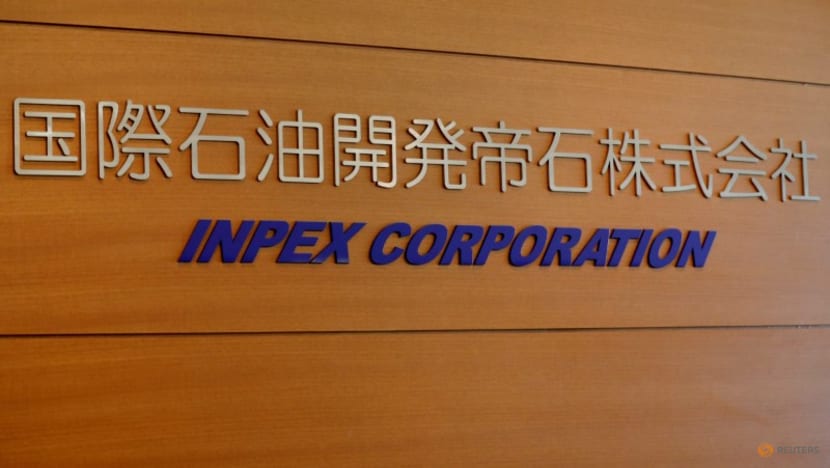Inpex to delay investment decision on Indonesia's Abadi LNG project due to COVID-19, climate change

Inpex's logo is pictured at its headquarters in Tokyo, Japan, Jul 3, 2018. (File photo: REUTERS/Kim Kyung-hoon)
TOKYO: Japanese energy company Inpex Corp expects its final investment decision (FID) on the Abadi liquefied natural gas (LNG) project in Indonesia to be delayed because COVID-19 has disrupted survey work and adjustments may be needed due to climate change, a senior executive said on Tuesday (Aug 10).
Japan's biggest oil and gas explorer said in July 2019 that it planned to start front-end engineering design (FEED) on the US$20 billion project, also known as the Masela gas project, in 2020, with LNG production at the giant field due to start by 2027 to 2028. Inpex controls 65 per cent of the project.
But preparatory work for the FEED has been suspended since last year due to the pandemic in Indonesia, Inpex's managing executive officer, Daisuke Yamada, said.
"There will be some delay in the FID though I can't say when," Yamada told media during an earnings briefing.
The company said in 2019 that it aimed to wrap-up its FID in three to four years.
"Also, given the growing global push toward decarbonisation, we may need to consider redesigning the Abadi project with carbon capture and storage (CCS) or carbon capture utilisation and storage (CCUS)," Yamada said.
Inpex, however, remains committed to developing the project, he said, as it wants to build another pillar in addition to its Ichthys LNG project in Australia.
The company raised its net profit forecast by 21 per cent to ¥170 billion (US$1.54 billion) for 2021, marking a V-shaped recovery from last year's ¥111.7 billion loss due to hefty impairment losses on its oil and gas assets.
"Higher than expected oil prices are behind the upgrade," Yamada said.
The company also lifted its annual dividend estimate to ¥40 a share from ¥33.
For the January to June period, Inpex booked a ¥51.98 billion net profit, against a ¥120.80 billion loss a year earlier when the pandemic hammered oil prices.







